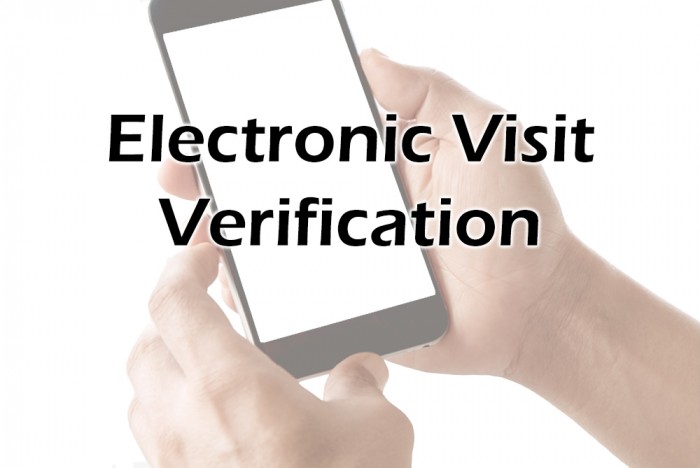The Centers for Medicare and Medicaid Services (CMS) recently announced that they will be releasing a new inpatient rehabilitation facility (IRF) Pricer software package prior to October 1, 2020. This new software package will contain updated rates that are effective for IRF claims with discharges that fall within October 1, 2020 through September 30, 2021. This Pricer software is used by providers and Medicare contractors to determine payment under the IRF prospective payment system (PPS).
Melissa Dehoff
CMS Hospital/Quality Initiative Open Door Scheduled for Sept 17
The Centers for Medicare and Medicaid Services (CMS) will conduct their next hospital/quality initiative open door forum on Thursday, September 17, 2020 at 2:00 pm. This call will focus primarily on the calendar year (CY) 2021 hospital outpatient prospective payment system (OPPS) proposed rule and the fiscal year (FY) 2021 hospital inpatient prospective payment system (IPPS) final rule. Time will also be allocated for questions.
To participate, dial 888-455-1397 and reference conference passcode: 9375124
Instant replay will be available beginning one hour after the call has ended. Instant replay is an audio recording of the call and be accessed by dialing 800-753-9736 (a passcode is not required). The recording will be available through September 19, 2020.
Upcoming MLTSS Subcommittee Meeting Scheduled for October 7, 2020
The next Managed Long-Term Services and Supports (MLTSS) Subcommittee meeting will be held on October 7, 2020 as a webinar with remote streaming from 10:00 am – 1:00 pm. To register for the webinar, please use this webinar registration link. After registering, you will receive a confirmation email containing information about joining the webinar. Remote captioning and streaming services will be provided. If you require these services, please use this remote captioning and streaming services link.
CMS Launches Streamlined Care Compare Health Care Tool
The Centers for Medicare and Medicaid Services (CMS) has launched a new health care comparison tool, Care Compare, that provides a single user-friendly interface that patients and caregivers can use to make informed decisions about health care based on cost, quality of care, volume of services, and other data. The site provides information about doctors, hospitals, nursing homes, and other health care services in one location rather than searching through multiple tools. In addition, patients can obtain information about quality measures, helpful hints and guides, and costs for procedures. Additional information about this new tool is available from the Press Release issued by CMS.
HHS Updates Previous Communication About CARES Act Application Deadline
This communication is to update and replace the ListServ email sent on August 4, 2020 regarding the subject: Updated- CARES Act Provider Relief Fund Payments Available for Medicaid/CHIP Providers – Application Deadline Extended to August 28, 2020. The U.S. Department of Health and Human Services (HHS) has extended the deadline to submit the application to HRSA for this funding to September 13, 2020. This information has been updated below. Please disregard the previous communication.
Eligibility Requirements:
To be eligible to receive HHS’ Medicaid Provider Phase 2 General Distribution payments, initial key eligibility requirements for Medicaid and CHIP programs and/or Medicaid and CHIP managed care organization providers include:
- The provider must have directly billed or own (on the application date) an included subsidiary that has billed a state Medicaid/CHIP program and/or a Medicaid/CHIP managed care plan for health care-related services between January 1, 2018 and December 31, 2019;
- The provider must have either (i) filed a federal income tax return for fiscal years 2017, 2018 or 2019 or (ii) be an entity exempt from the requirement to file a federal income tax return and have no beneficial owner that is required to file a federal income tax return (e.g. a state-owned hospital or healthcare clinic);
- The provider must have provided patient care after January 31, 2020;
- The provider must not have permanently ceased providing patient care directly, or indirectly through included subsidiaries; and
- If the applicant is an individual, they must have gross receipts or sales from providing patient care reported on Form 1040, Schedule C, Line 1, excluding income reported on a W-2 as a (statutory) employee.
Providers who have received a payment under Phase 1 of the General Distribution are no longer prohibited from submitting an application under Phase 2 of the General Distribution. Providers who received a previous Phase 1 – General Distribution payment are eligible to apply and, if they have not yet received a payment that is approximately 2 percent of annual revenue from patient care, may receive additional funds.
Examples of types of Medicaid/CHIP providers that are eligible for these payments include pediatricians, obstetrician-gynecologists, dentists, opioid treatment and behavioral health providers, assisted living facilities, and other providers of home and community-based services. In order to receive Provider Relief Fund payments, eligible Medicaid/CHIP providers must take action through HRSA’s application portal and comply with the Medicaid Relief Fund Payment Terms and Conditions.
Provider Relief Fund payments will be at least two percent (2 percent) of reported gross revenue from patient care. Eligible Medicaid/CHIP providers can report their gross annual patient revenue through the Enhanced Provider Relief Fund Payment Portal and the final amount that a provider receives will be determined after such data is submitted, including information on the number of Medicaid patients served. HHS has issued a comprehensive set of instructions for submitting an application through the application portal.
Before applying through the Enhanced Provider Relief Fund Payment Portal, applicants should:
- Read the Medicaid Provider Distribution Instructions – PDF
- Download the Medicaid Provider Distribution Application Form – PDF
In addition, DHS encourages Medicaid/CHIP providers to carefully review the Medicaid Relief Fund Payment Terms and Conditions with their attorneys and accountants on the appropriate use of and questions about CARES Act Provider Relief Funds.
HHS has created a listing of CARES Act Provider Relief Funds Frequently Asked Questions (FAQ).
The complete press release is on the HHS website.
A PDF fact sheet explaining the application process has also been released to address questions. Please note that the fact sheet lists the outdated application submission deadline. The application submission deadline is now September 13, 2020.
More information about eligibility and the application process is also available on the HHS website.
OLTL Assessment & Reassessment Guidance for OBRA and Act 150 Service Coordinators
In June 2020, the Office of Long-Term Living (OLTL) issued transition plans to phase out temporary changes to the OBRA Waiver and Act 150 Program via the OLTL Listserv. The transition plans direct the OBRA and Act 150 Program Service Coordinators (SCs) to resume performing face-to-face assessments and allow telephonic assessments when risk factors are present in the participant’s home. The transition plans also allow the SCs to make adjustments (additions or reductions) to service plans as determined by the participant’s assessment. On August 26, 2020, OLTL issued additional guidance for OBRA and Act 150 SCs as they resume face-to-face assessments. Questions about this information should be directed to the OLTL Provider Helpline at 800-932-0939.
DHS Delays Deadline for Compliance Requirements of Electronic Visit Verification
The Department of Human Services (DHS) recently announced they would be delaying the deadline for the compliance requirements of electronic visit verification (EVV) for personal care services (PCS) until January 1, 2021. No claims will be denied because of EVV until January 1, 2021; however, providers are encouraged to use their best efforts to continue to use EVV during this public health emergency (PHE). Providers using Alternate EVV who have not already reached out to begin this process must contact Sandata Alternate EVV support team by phone at 1-855-705-2407 or by email. As a reminder, this process began in August 2019, so if you have already reached out to Sandata to begin this process, you do not need to do so again.
The Alternate EVV certification process takes 4–6 weeks for completion. The Quick Reference Guide outlines the alternate EVV process and the required actions for providers, alternate EVV vendors, and Sandata throughout the eight-step process. All PCS providers must complete the EVV compliance audit survey. If you have already responded to the EVV compliance audit survey, you do not need to respond again.
Updated 2020 EVV Implementation Timeline:
- January 1, 2020 through December 31, 2020: All Providers must begin using EVV for PCS.
- Error Status Codes (ESCs) are in effect for claims submitted through PROMISeTM for services subjected to EVV.
- Providers should review the ESCs to identify whether claims are supported by EVV visits in the DHS Aggregator. These ESCs will assist providers in understanding when claims will deny beginning January 1, 202
- Additional information on ESCs can be found on the DHS EVV website and were also sent out via Listserv communications.
- January 1, 2021 and after: Claims submitted for PCS without a matching EVV visit will be denied.
For any questions related to EVV, please email the EVV resource account or visit the DHS EVV Website.
Department of Health Launches New Acquired Brain Injury Program Web Page
CMS Issues Medicare Physician Fee Schedule Proposed Rule for CY 2021
The Centers for Medicare and Medicaid Services (CMS) placed on display at the Federal Register, the calendar year (CY) 2021 Medicare Physician Fee Schedule proposed rule. Some of the proposed provisions include:
PAYMENT ISSUES
- Medicare Telehealth – CMS proposes to add certain services to the permanent telehealth list, including:
- Neurobehavioral Status Exam
- Care Planning for Patients with Cognitive Impairment
- Home Visits
The proposed rule also includes a provision to create a new list of telehealth services (Category 3 ) that would only be available on a temporary basis during public health emergencies (PHE), and through the end of the calendar year in which the PHE ends. These services include:
- Home Visits
- Emergency Department Visits
- Nursing Facility Discharge Day Management
- Psychological and Neuropsychological Testing
CMS is soliciting feedback for additional services that should be added to the temporary telehealth list. CMS also clarifies the types of clinicians that can provide assessment and management services, virtual check-ins and remote evaluation services. Additionally, the proposed rule includes a provision that would permit physical and occupation therapists to be permitted to independently furnish maintenance therapy to outpatients, if delegated by a therapist.
- Remote Physiological Monitoring (RPM) Services- CMS clarifies in this proposed rule their payment policies related to RPM services described by CPT codes 99453, 99454, 99091, 99457, and 99458. In addition, CMS is proposing as a permanent policy two clarifications to RPM Services that were finalized in response to the PHE for the COVID-19 pandemic.
- Immunization Services – CMS is proposing to establish new payment rates for immunization administration services described by CPT codes 90460, 90461, 90471, 90472, 90473, and 90474 and HCPCS codes G0008, G0009, and G0010 that better reflect the relative resources involved in furnishing all of these services, in consideration of payment stability for stakeholders, public health concerns and the import of these services for Medicare beneficiaries.
- Direct Supervision by Interactive Telecommunications Technology – For the duration of the PHE for the COVID-19 pandemic, for purposes of limiting exposure to COVID-19, CMS adopted an interim final policy revising the definition of direct supervision to include virtual presence of the supervising physician or practitioner using interactive audio/ video real-time communications technology (85 FR 19245). CMS recognized that in some cases, the physical proximity of the physician or practitioner might present additional infection exposure risk to the patient and/or practitioner. In this proposed rule, CMS is proposing to allow direct supervision to be provided using real-time, interactive audio and video technology (excluding telephone that does not also include video) through December 31, 2021 and is seeking information from commenters as to whether there should be any guardrails in effect as they finalize this policy though December 31, 2021, or consider it beyond the time specified and what risks this policy might introduce to beneficiaries as they receive care from practitioners that would supervise care virtually in this way. In addition to comments regarding patient safety/clinical appropriateness, CMS is seeking comment on potential concerns around induced utilization and fraud, waste, and abuse and how those concerns might be addressed..
PROFESSIONAL SCOPE OF PRACTICE PROPOSALS
- Supervision of Diagnostic Tests by Certain Nonphysician Practitioners (NPPs) – CMS is proposing to make permanent following the COVID-19 PHE, the same policy that was finalized under the May 1st COVID-19 IFC, for the duration of the COVID-19 PHE. This proposal would allow nurse practitioners (NPs), clinical nurse specialists (CNSs), physician assistants (PAs) and certified nurse-midwives (CNMs) to supervise the performance of diagnostic tests in addition to physicians. Prior to the May 1st COVID-19 IFC, these nonphysician practitioners were already authorized under Medicare regulations to order and furnish diagnostic tests, while as a basic rule, generally only physicians (medical doctors and doctors of osteopathy) were authorized to supervise the performance of diagnostic tests. However, if finalized on a permanent basis effective January 1, 2021, NPs, CNSs, PAs and CNMs would be allowed under the Medicare Part B program to supervise the performance of diagnostic tests within their state scope of practice and applicable state law, provided they maintain the required statutory relationships with supervising or collaborating physicians.
- Pharmacists Providing Services Incident to Physicians’ Services – CMS is reiterating the clarification provided in the May 1st COVID-19 IFC (85 FR 27550 through 27629), that pharmacists fall within the regulatory definition of auxiliary personnel under our “incident to” regulations. As such, pharmacists may provide services incident to the services, and under the appropriate level of supervision, of the billing physician or NPP, if payment for the services is not made under the Medicare Part D benefit. This includes providing the services incident to the services of the billing physician or NPP and in accordance with the pharmacist’s state scope of practice and applicable state law.
- Therapy Assistants Furnishing Maintenance Therapy – CMS is proposing to make permanent the Part B policy for maintenance therapy services that were adopted on an interim basis for the PHE in the May 1st COVID-19 IFC that grants a physical therapist (PT) and occupational therapist (OT) the discretion to delegate the performance of maintenance therapy services, as clinically appropriate, to a therapy assistant – a physical therapist assistant (PTA) or an occupational therapy assistant (OTA). CMS is making this proposal because they no longer believe all such maintenance therapy services require the PT or OT to personally perform them and to better align our Part B policy with that paid under Part A in skilled nursing facilities and the home health benefit where maintenance therapy services may be performed by a PT/OT or a PTA/OTA. This proposed policy would allow PTs/OTs to use the same discretion to delegate maintenance therapy services to PTAs/OTAs that they utilize for rehabilitative services. CMS is also proposing to revise their sub-regulatory provisions to clarify that PTs and OTs no longer need to personally perform maintenance therapy services and to remove the prohibitions on PTAs and OTAs from furnishing such services. Should the PHE end before January 1, 2021, the PT or OT would need to personally furnish the maintenance therapy services until the proposed policy change takes effect.
- Medical Record Documentation – CMS finalized modifications to the medical record documentation requirements for the physician and certain NPPs. CMS clarifies that physicians and NPPs, including therapists can review and verify documentation entered into the medical record by members of the medical team for their own services that are paid under the PFS. CMS also clarifies that therapy students, and students of other disciplines, working under a physician or practitioner who furnishes and bills directly for their professional services to the Medicare program, may document in the record so long as it is reviewed and verified (signed and dated) by the billing physician, practitioner, or therapist.
The proposed rule is scheduled to be published in the Federal Register on August 17, 2020. Comments on the proposed rule will be accepted until October 5, 2020.
HHS Releases COVID-10 Testing Plans From States
The Department of Health and Human Services (HHS) recently released and publicly posted the July 2020 through December 2020 COVID-19 testing plans from all states. These testing plans serve as a roadmap developed in partnership with the Federal government for each jurisdiction’s monthly 2020 testing strategy for SARS-CoV-2 (the virus that causes COVID-19). The plans include details on responding to surges in cases and reaching vulnerable populations including minorities, immunocompromised individuals, and older adults.
Each state plan is required to include details of critical parameters for state testing strategies, including target numbers of tests per month, as outlined in the Centers for Disease Control and Prevention’s (CDC’s) Epidemiology and Laboratory Capacity for Prevention and Control of Emerging Infectious Diseases (ELC) guidance document.















